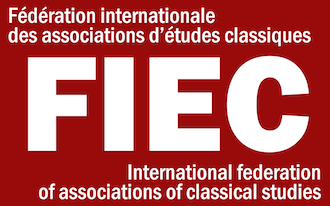Today we would like to call your attention to the World Conference of
the Humanities that has been announced to be held in Liège, Belgium, from the 6th to the 12th of
August 2017. The congress entitled “Challenges
and Responsibilities for a Planet in Transition” will be organized by
UNESCO, the
International Council for Philosophy and Human Sciences (ICPHS) as well as
LIEGETOGETHER
and “ will gather about 1800 participants from all over the world working
in the fields of science, politics, art and communication, as well as
representatives of international, governmental and non-governmental
organizations.”
In anticipation of this major event, the organizers have sent an invitation to all scholars and scholarly
institutions in the world asking them to contribute in various ways to its
preparation.
“The world – all countries and nations, all people and academies – is
experiencing and facing the challenges of global cultural, social and
environmental changes, which call upon all to find innovative responses, rooted
in the diversity of perspectives driven by the multitude of diverse past and
ongoing understandings of science, culture, education and sustainability.
Human history is the history of transitions, of changes, and of the
capacity to build from diversity and convergence. Beyond the pressures of
immediate needs, it is foresight, equipped with mid- and long-term vision, that
allows human societies to make sense of the world they are living in.
A fundamental role of the humanities is precisely to strengthen such
foresight from academic perspectives, while embracing a permanent interaction
will all other sectors of knowledge and policies in society.
UNESCO conducted a debate on the need to resume this understanding,
within its programmes and beyond, and to promote it within global, shared and
convergent policies. The Executive Board of UNESCO adopted a decision in 2011, at
the initiative of the Republic of Korea, which inter alia recognized
“the role of the humanities as a provider of visions and insights in line with
the focus of UNESCO’s new humanism, which underlines the importance of
preventing the fragmentation of humanity and the need to build genuine
foundations for development and peace” and reaffirmed “the invaluable
contribution that the humanities can make towards establishing new human values
in times of increasing globalization, greater connectivity and also rising
uncertainty, in the face of new economic, financial and social challenges”.
Since 2009, as proposed by CIPSH, the need to organize a World
Humanities Conference has been agreed with UNESCO. The General Assembly of
CIPSH in 2014 approved the proposal of LiègeTogether to organize the World Conference,
considering in particular that “there has been no global re-thinking on the
role and scope of humanities following the major global changes that were
accelerated in the past few decades” and that “there is a growing need to
re-introduce in the daily agenda of society a mid and long term perspective,
that is required in face on the future uncertainty and which finds no answer
within the limits of a purely immediate problem-solving approach”.
The World Humanities Conference will take place in Liège, Belgium,
from 6 to 12 August 2017. It will be preceded by a series of conferences and
other academic events, engaging all continents. The conference, which will
involve scholars from all fields of the humanities, but also of the natural,
social and formal sciences, is open to all possible contributions and will be
structured around six main themes:
a)
Humans and the environment;
b)
Cultural identities,
cultural diversity and intercultural relations;
c)
Cultural heritage;
d)
Boundaries and migrations;
e)
History, memory and
politics;
f)
The humanities in a world
in transition.
The Conference will strengthen the organization of the humanities,
notably in its interdisciplinary and transdisciplinary dimensions, including
all sciences. It will contribute to epistemological debate and convergence of
scholarly and wider cultural approaches, with a view to bridging the gap that
often exists with the rest of society and the design of research, education and
territorial policies. A major strength of human societies is their diversity
and Humanities are particularly well placed to foster such diversity and
complementarity.
On the 67th anniversary of the creation on 18 January 1949 of the
International Council for Philosophy and Human Sciences, UNESCO organized a
working meeting in Paris to prepare the World Humanities Conference, with the participation
of CIPSH, Liège Together and the ambassadors and permanent delegations of
several UNESCO member states.
On this occasion, UNESCO, CIPSH and LiègeTogether formally invite all
scholars and research networks in the world to engage with the preparation of
the Conference, in particularly by proposing papers and sessions, organising
meetings of research networks during the Conference, involving young
researchers and students in the preparation process, promoting preparatory
events or involving the relevant non-academic sectors in the Conference debates.
The aims and challenges are very demanding and difficult. But the
current global context, academic and beyond, demands no less.
Paris, 18th January, 2016”
